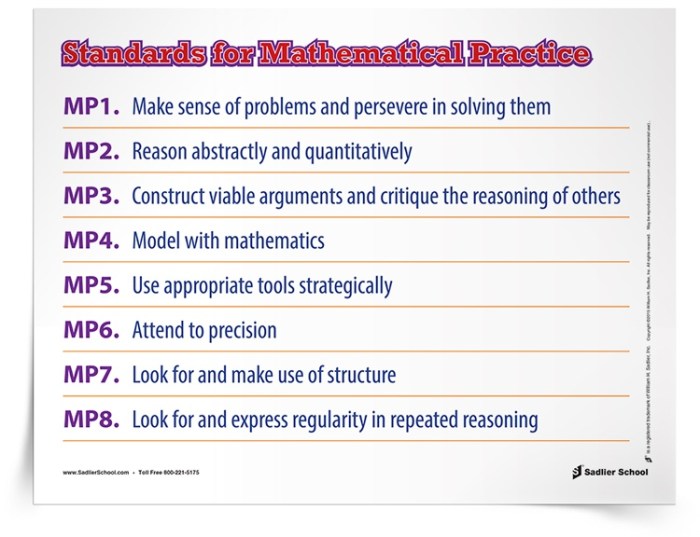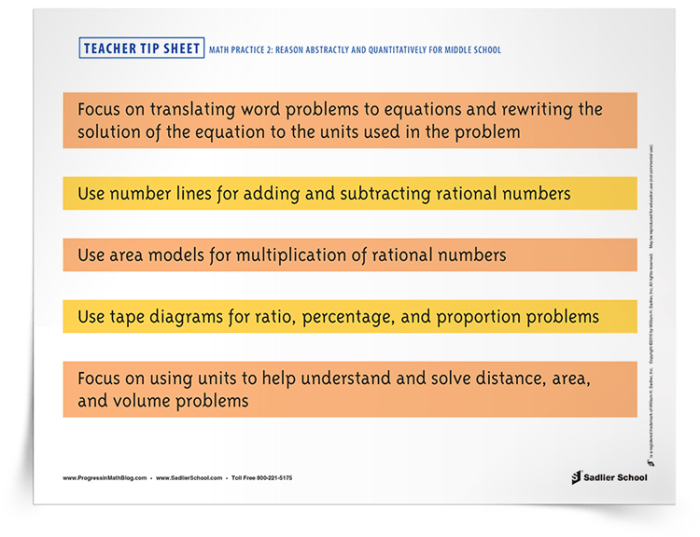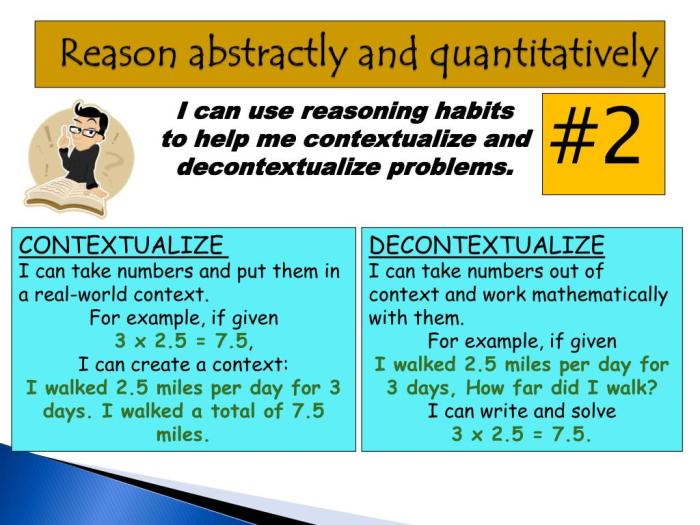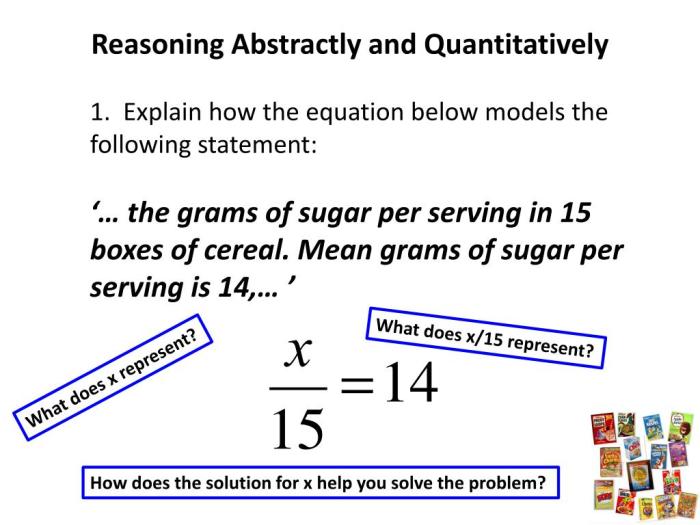Reason abstractly and quantitatively examples – Reasoning abstractly and quantitatively are essential cognitive skills that play a vital role in various aspects of our lives. Abstract reasoning involves the ability to think conceptually and draw inferences from abstract ideas, while quantitative reasoning entails the use of numerical and mathematical concepts to solve problems and make informed decisions.
This article explores the concepts of abstract and quantitative reasoning, providing real-world examples and discussing their applications in different fields. It also offers practical strategies for developing these critical thinking skills.
Defining Abstract Reasoning and Quantitative Reasoning

Abstract reasoning involves the ability to think logically and conceptually, independent of specific examples or real-world experiences. Quantitative reasoning, on the other hand, focuses on using numerical and mathematical concepts to solve problems and draw conclusions from data.
Abstract reasoning is essential for understanding complex ideas and theories, while quantitative reasoning is crucial for making informed decisions based on numerical evidence.
Examples of Abstract Reasoning and Quantitative Reasoning
| Abstract Reasoning | Quantitative Reasoning |
|---|---|
| Understanding the concept of infinity | Calculating the average score of a dataset |
| Reasoning about the nature of time | Predicting future sales based on historical data |
| Analyzing the structure of a complex argument | Determining the probability of a specific outcome |
| Evaluating the ethical implications of a decision | Optimizing a production process using statistical methods |
Methods for Developing Abstract and Quantitative Reasoning Skills, Reason abstractly and quantitatively examples
- Practice logical puzzles and riddles to enhance abstract reasoning.
- Study mathematics, statistics, and computer science to improve quantitative reasoning.
- Engage in critical thinking exercises that require analyzing and evaluating arguments.
- Use quantitative data to support decision-making and problem-solving.
Applications of Abstract and Quantitative Reasoning in Different Fields
| Field | Abstract Reasoning | Quantitative Reasoning |
|---|---|---|
| Philosophy | Understanding the nature of reality and knowledge | N/A |
| Mathematics | Developing mathematical theories and proofs | N/A |
| Science | Formulating hypotheses and designing experiments | Analyzing data and drawing conclusions |
| Engineering | Designing and optimizing systems | Using mathematical models to solve problems |
| Business | Developing strategies and making financial decisions | Analyzing market trends and forecasting demand |
Popular Questions: Reason Abstractly And Quantitatively Examples
What is the difference between abstract and quantitative reasoning?
Abstract reasoning involves thinking conceptually and drawing inferences from abstract ideas, while quantitative reasoning utilizes numerical and mathematical concepts to solve problems and make informed decisions.
How can I improve my abstract reasoning skills?
Effective methods for improving abstract reasoning skills include practicing logical puzzles, engaging in philosophical discussions, and developing a strong foundation in mathematics.
What are some real-world applications of quantitative reasoning?
Quantitative reasoning finds applications in science, engineering, business, and many other fields where numerical data and mathematical concepts are used to solve problems and make informed decisions.


